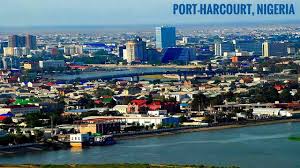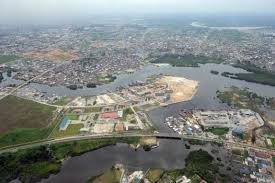History Of Port Harcourt
Founded in 1913 by the British colonialist. The purpose of Portharcourt was to export the coal a geologist Albert Ernest Kitson had discovered in Enugu in 1909. The colonial government caused the people of Diobu to cede their land and by 1912 the building of a port-town was started. Other villages that were later absorbed into the city included oroworukwo, Mkpogua and rumuomasi. In the creeks to the south of the original post were the fishing camps ad grounds of the Okrika-Ijaw group.
During world war one, Port Harcourt was used as a point for military operations against the Central Powers in German Kamerun. After the discovery of crude oil in Olobiri in 1956, Portharcourt exported the first shipload from Nigeria in 1958. Port Harcourt became the center of the Nigeria oil economy and it subsequently reaped benefits of its associations with the petroleum industry by undergoing modernization and urbanization. Portharcourt growth os further due to its position as the commercial centre and foremost industrial city of the former eastern region; its position in the Niger Delta; the main city of Portharcourt is the port harcourt city in the portharcourt local government area, consisting of the former European quarters now called old GRA and newlayout areas. The portharcourt urban area (the portharcourt metropolis) is made up of the city itself and parts of obio-akpor LGA.
Portharcourt city which is the capital of Rivers state is highly congested as it is the only major city of the state. A law was passed by the state house of assembly and governor amaechi’s administration to spread development to the surrounding communities as part of the effort to decongest the portharcourt metropolis. The Greater portharcourt urban area spans eight LGAs that include Portharcourt local government, okrika, obio-akpor, ikwerre, oyigbo, ogu-bolo, tai and eleme local governments respectively has a total population estimate for 2012 at 1,947,000 making it the fifth largest urban area in Nigeria. Only the urban areas of lagos, kano, Ibadan and Abuja that are bigger than it.
Portharcourt features a tropical monsoon climate with lengthy and heavy rainy seasons and very short dry season. Only the months of December and January truly qualifies as dry season months in the city. The harmattan, which climatically influences many cities in west Africa is less pronounced in portharcourt.
REFERENCES:
- Urban Politics In Nigeria
- The Greater Port Harcourt Project... Myth or Reality
- Celebrating Port Harcourt at 100
Comment
Upvote
Thanks


Hi! I am a robot. I just upvoted you! I found similar content that readers might be interested in:
https://en.wikipedia.org/wiki/Port_Harcourt